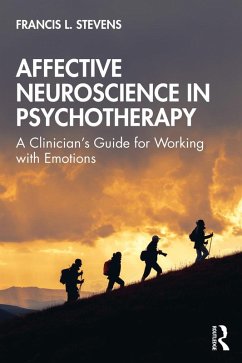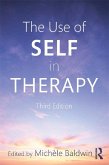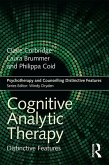Dieser Download kann aus rechtlichen Gründen nur mit Rechnungsadresse in A, B, BG, CY, CZ, D, DK, EW, E, FIN, F, GR, HR, H, IRL, I, LT, L, LR, M, NL, PL, P, R, S, SLO, SK ausgeliefert werden.
Karin Maria Hodges, Psychologist, Private Practice, Concord, MA
"Cognitive approaches to psychotherapy have come to dominate the field in recent decades, in part because of their solid scientific foundation. They typically view emotional distress as a symptom to be reduced. Psychotherapy approaches that emphasize experiencing and processing emotional distress are effective but less well validated. This excellent book aims to restore the balance and does more to link recent advances in basic affective neuroscience and psychotherapy practice than any other. Recommended for beginning psychotherapists as well as any clinician who takes emotional processing in psychotherapy seriously and wants to know how and why it works."
Richard D. Lane, M.D., Ph.D., Professor of Psychiatry, Psychology and Neuroscience, University of Arizona; Editor (with Lynn Nadel) of Neuroscience of Enduring Change: Implications for Psychotherapy (Oxford University Press)
"Dr. Stevens has done a fine job of compiling recent information on affective neuroscience and its application to therapy. His clinical examples help to illustrate key concepts. This book provides a helpful introduction to these topics."
Alexis D. Abernethy, Ph.D., Professor of Clinical Psychology , School of Psychology & Marriage and Family Therapy, Fuller Theological Seminary









